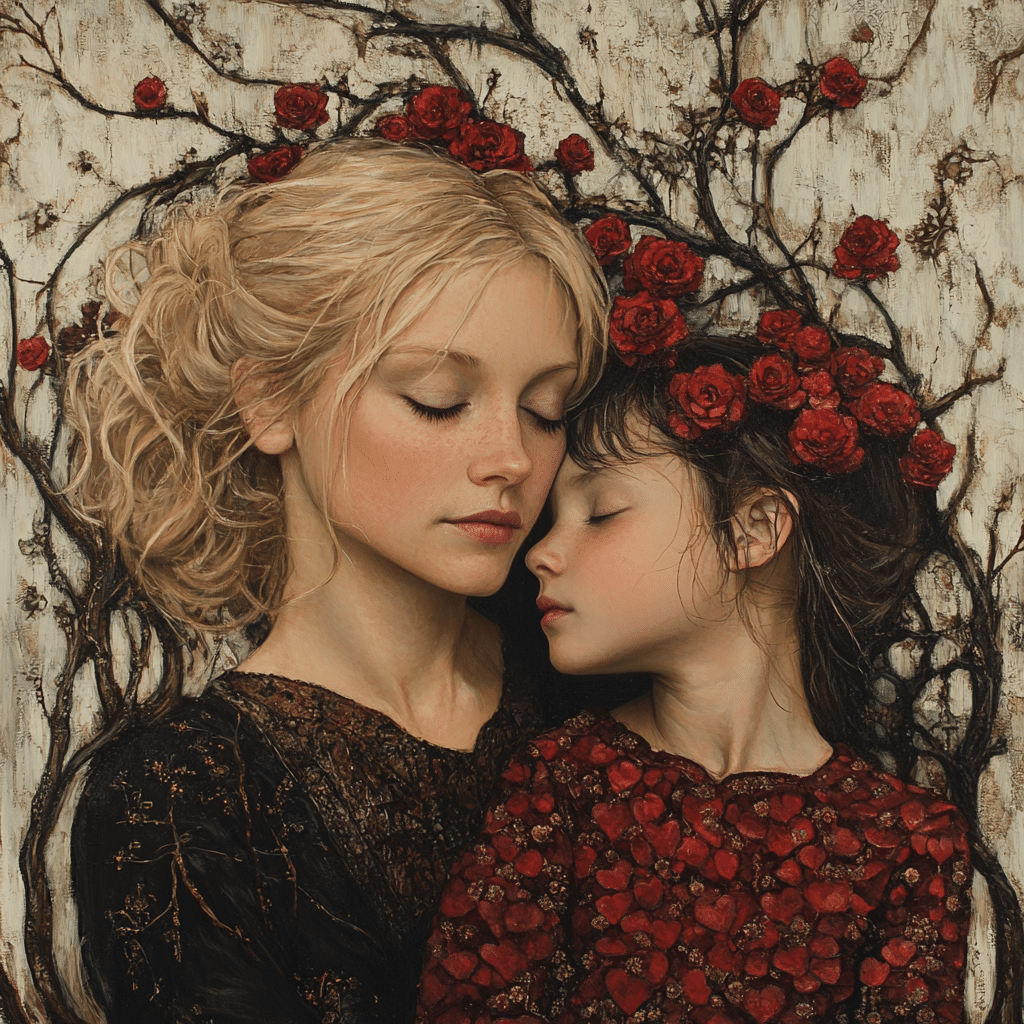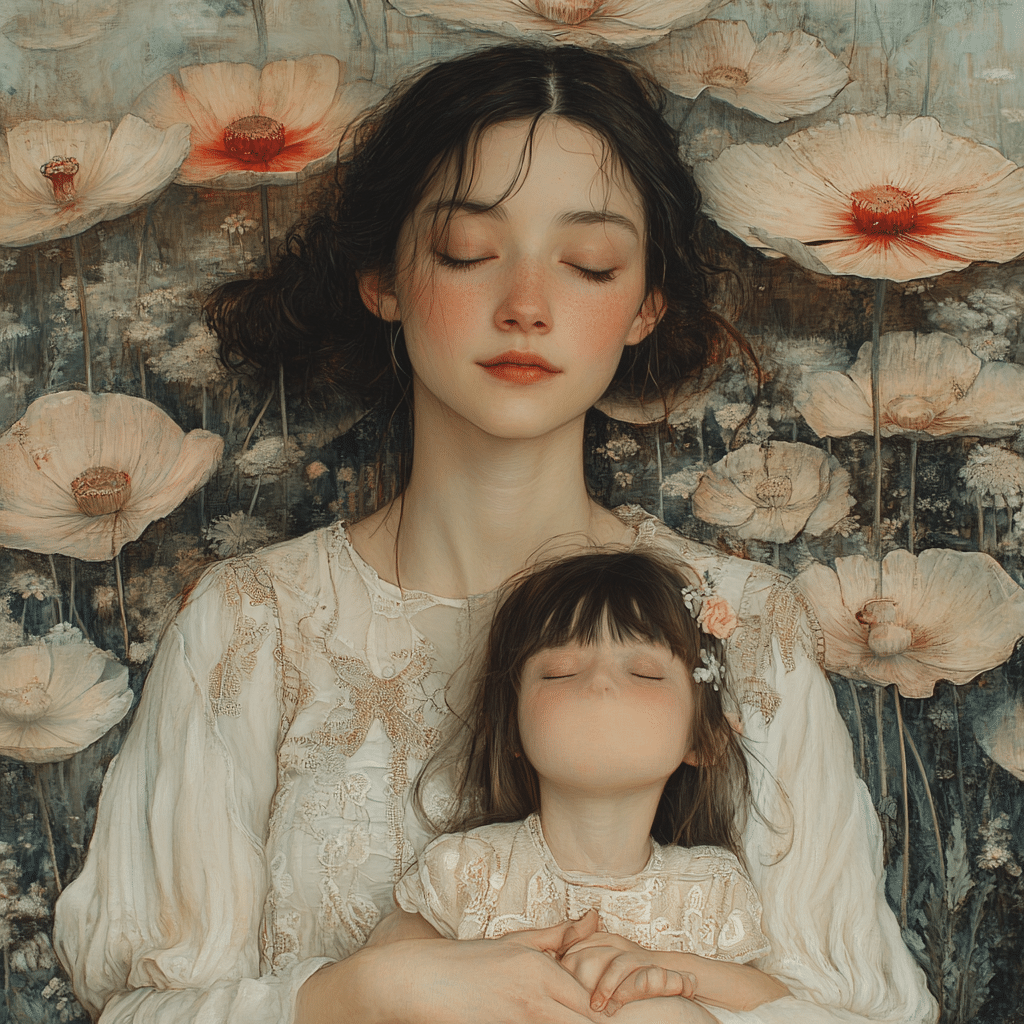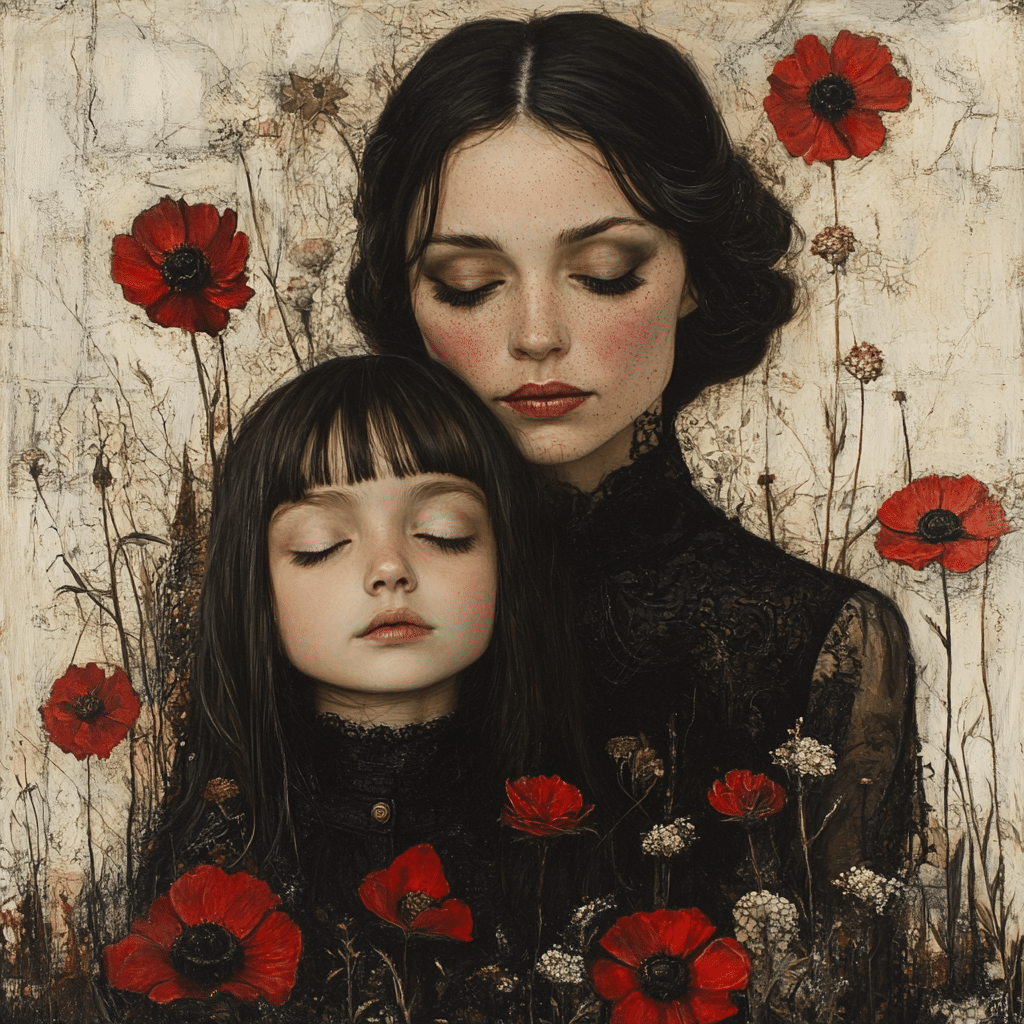Breaking Down the Concept of ‘Other Mothers’
In today’s dynamic and multifaceted society, other mothers—women who provide care for children who are not their own—have taken on a pivotal role in childcare. The term ‘other mothers’ encompasses a broad spectrum of caregivers, including grandmothers, aunts, close family friends, and professional caregivers. These women weave a critical support network enhancing child development and family unity.
This concept of other mothers is not new; instead, it has evolved and adapted to meet the changing needs of families. Balancing work, personal life, and childcare is a massive task for many mothers. As a result, the indispensable role of other mothers is becoming more recognized and vital. This multifaceted support ensures that children receive the richness of diverse care and attention, reinforcing their emotional, psychological, and social development.
Historical Context: The Traditional Role of Other Mothers
Historically, extended families have played a significant role in raising children. Culturally, it was commonplace for grandmothers, aunts, and other women in the community to assist with child-rearing. This community-based approach was indispensable in helping mothers manage other responsibilities, including household tasks, work, and community involvement.
In many African and Caribbean societies, for example, other mothers were essential for family survival and prosperity. This cooperative methodology ensured that every child received adequate attention, love, and guidance. These historical practices underscore the ethos of community being central to upbringing, fostering an environment where children thrive.

| Aspect | Information |
|---|---|
| Definition | Othermothers are women who provide care for children who are not biologically their own. |
| Geographic Prevalence | Commonly documented in Africa, African diaspora, United States, and the Caribbean region. |
| Roles and Responsibilities | – Providing emotional and practical support. |
| – Assisting with daily activities, including feeding, education, and supervision. | |
| – Offering guidance and mentorship to both children and biological mothers. | |
| Cultural Significance | – Integral in community-based child-rearing practices. |
| – Helps relieve the burden on biological mothers, creating a support network. | |
| – Seen as a form of communal solidarity and collective caregiving. | |
| Benefits | – Reduces maternal burnout and stress among biological mothers. |
| – Offers children different perspectives and guidance. | |
| – Strengthens community bonds and promotes social cohesion. | |
| Concerns and Challenges | – Potential for over-reliance on othermothers. |
| – Risk of unclear boundaries and expectations. | |
| – Navigating complex emotional dynamics within the caregiving network. | |
| Modern Implications | – Increasing consideration in the context of mom burnout and depleted mother syndrome. |
| – Potential subject for journalistic storytelling, e.g., Tash’s investigation into a nanny’s death. | |
| Case Studies | – African and Caribbean communities with strong traditions of othermothering. |
| – Recent observations in urban settings in the United States. | |
| Supporting Systems | – Community groups, church organizations, and social services. |
| – Potential need for formal recognition and support from policy-makers. | |
| Related Terms | – Communal caregiving, surrogate mother, maternal support network. |
Modern Dynamics: Evolving Families and the Rise of Professional Caregivers
Today’s diverse family structures see other mothers’ roles expand beyond family members to incorporate professional caregivers. Renowned childcare brands like KinderCare and Bright Horizons offer structured, nurturing environments, highlighting how professional caregivers significantly contribute to children’s early education and socialization.
Companies are increasingly recognizing the benefits of providing childcare solutions for their employees. For instance, Patagonia’s childcare model is a stellar example. They offer on-site childcare services, demonstrating the importance of professional other mothers in supporting working parents and contributing to a child’s holistic development.
With the advent of technology, apps like Nanny Lane revolutionize how families find and manage caregivers. This innovation ensures trustworthiness and efficiency, making other mothers’ role in modern childcare more dynamic and adaptable to contemporary needs.
Analysis: Impact of Other Mothers on Child Development
Emotional and Psychological Support
Kids today face numerous challenges; however, the emotional and psychological support provided by other mothers can significantly benefit their development. Research from Harvard University suggests that children cared for by multiple maternal figures show higher levels of emotional resilience and social competence. The varied emotional inputs they receive from other mothers are crucial for their adaptive capabilities in diverse social settings.
Multidimensional Learning Opportunities
Other mothers bring their unique skills and perspectives, enriching the learning environment for children. A grandparent might impart family traditions and cultural values, whereas a professional caregiver from a multicultural center, such as Montessori schools, can integrate varied educational philosophies, offering children a rich, holistic upbringing.
Real-World Examples: Success Stories
The Obama Family and Marian Robinson
A prominent example is the Obama family. Michelle Obama often highlights how instrumental her mother, Marian Robinson, was in raising Sasha and Malia. Robinson’s presence allowed Michelle Obama to fulfill her duties as the First Lady while ensuring her daughters received constant and loving care from their grandmother.
Corporate Innovations: Patagonia’s Childcare Model
Similarly, Patagonia’s on-site childcare program underscores the vital role of professional other mothers. By supporting working parents, Patagonia ensures their employees can focus on their tasks, knowing their children are receiving unparalleled care. This model not only aids families but also nurtures the children’s development needs keenly.

Incorporating Technology: New Tools for Other Mothers
Technological advancements have transformed how families and other mothers operate. Apps like Nanny Lane and Care.com are instrumental in connecting families with trustworthy caregivers. By providing safety checks, scheduling integration, and real-time updates, technology ensures that other mothers can offer effective, reliable care that modern families demand.
Societal Benefits: Broader Impact Beyond Families
The influence of other mothers extends beyond individual families, offering broader societal benefits. Comprehensive childcare support enables more women to join the workforce, stimulating economic growth. Legislative frameworks such as the Family and Medical Leave Act (FMLA) in the United States promote shared caregiving responsibilities, highlighting other mothers’ crucial role in national productivity and social stability.
Challenges and Controversies: Addressing Skepticism
Despite many benefits, there remain criticisms regarding the efficacy of other mothers compared to biological mothers. Traditionalists might argue that non-biological or professional caregivers cannot replicate the unique bond of a biological mother. However, extensive research by the American Psychological Association indicates that the quality of care, rather than biological ties, plays a pivotal role in a child’s development.
Embracing the Future of Childcare
The evolving concept of other mothers is a testament to family structure adaptability and resilience in contemporary society. Embracing the diverse forms of maternal support helps strengthen community bonds and enriches the developmental journey of every child. By incorporating historical wisdom, modern innovations, and technological advancements, the role of other mothers will remain indispensable in nurturing future generations.
In Today’s World: The evolving role of other mothers is crucial and underscores a timeless truth—raising a child takes a village. These caregivers, whether family or professionals, enrich children’s lives emotionally, culturally, and educationally, ensuring they grow with resiliency, social competence, and a deep sense of community.
Providing Informational Links
More information on the foundational support mechanisms, like professional childcare providers or understanding the historical significance of other mothers, can be found here. Other mothers’ impact on diverse social settings and family dynamics is undeniable; referring to these works can provide invaluable insights: lesbian tongue kissing, loan Calculators mortgage, Danta wright, Fotos de Las Mujeres, mortgage interest rates history, orlando brown Movies And tv Shows, Ovo Ncaa, and palestine Protests.
By recognizing and valuing the critical role of other mothers, we can build more supportive and cohesive communities that uplift every child’s developmental journey.
Discovering the Vital Role of Other Mothers
In the heartwarming fabric of communities, “other mothers” often weave supportive and crucial roles. Did you know that this concept isn’t new? Throughout history, other mothers( have lent a hand in childcare to busy biological mothers. These women, who step in as nurturers, may not be related by blood but surely, they form bonds that are just as strong. They provide the backbone of childcare, often stepping in when mom just can’t catch a break.
Aunties and Godmothers
Interestingly, the role of the “other mother” has various faces, from aunties to godmothers. In many cultures, godmothers are expected to step in during times of need, acting almost like second mothers. Taking on these duties, they often help to fill gaps, juggling it all( so the child’s needs are always covered. From school pickups to offering wisdom—these women quietly reinforce the community’s fabric, often without any applause.
Village to Raise a Child
You must have heard the saying, “It takes a village to raise a child,” right? This sentiment holds water, as it’s often the combined effort of neighborly support( and community that ensures a child thrives. Stepping beyond traditional family roles, other mothers in the neighborhood often become unsung heroes. Remember the friendly neighbor who would keep an eye on the kids while mom tackled her errands? Exactly!
When grandma’s babysitting isn’t an option, that’s where these incredible women swoop in. It’s not just about giving mom a break; it’s about fostering a network where the child feels loved and supported from multiple angles. These “other mothers” are pivotal in ensuring a balanced upbringing filled with diverse influences and love.
So, here’s to all the other mothers out there—relatives, friends, neighbors—who enrich the lives of children and provide a safety net for their families. Their roles, though often overlooked, are nothing short of invaluable.

What is the meaning of other mothers?
Othermothers are women who look after kids who aren’t their biological ones. This has been seen in Africa and among African descendants in places like the US and the Caribbean.
What is the plot of the other mothers?
When a young nanny dies mysteriously, new mom Tash, who’s looking for a story to kick off her freelance journalism career and some mom friends, gets drawn in.
What is depleted mother syndrome?
Depleted mother syndrome, or mom burnout, is when a mom feels totally worn out mentally, emotionally, and physically due to nonstop child care demands. It’s like being on overload with no help to deal with it.
What is the other mothers real name?
In “The Other Mothers,” the main character is Tash, a new mom and aspiring freelance journalist.
What being is the Other Mother?
The Other Mother in the context of “Coraline” is a creepy, sinister entity who creates a parallel world to lure children.
Why do people call others mother?
People call others ‘mother’ when they take on a nurturing role for kids who aren’t their biological children, a practice seen in many cultures.
What is the plot of the other mother?
The plot of “The Other Mother” involves a young girl named Coraline discovering a parallel world with an eerie version of her own mother trying to entrap her.
How does the other mother end?
In “Coraline,” the Other Mother ends up defeated and banished to a tiny space by Coraline, who cleverly uses her wits to escape.
What does the other mother do with the eyes?
The Other Mother in “Coraline” takes the eyes of children and replaces them with buttons, symbolizing her control over them.
What is it called when a mother sleeps with her son?
There’s no specific term for a mother sleeping with her son, but it’s considered incest and is illegal and abusive.
What is toxic mother syndrome?
Toxic mother syndrome is when a mom behaves in ways that harm her child’s emotional well-being, often through manipulation and control.
What is cold mother syndrome?
Cold mother syndrome is characterized by emotional detachment, lack of warmth, and even neglect towards one’s child.
Why does the Other Mother tap her fingers?
The Other Mother taps her fingers in a way that sounds like spider legs, adding to her creepy, unsettling vibe.
Does wybie’s grandma know about the Other Mother?
Wybie’s grandma in “Coraline” knows about the Other Mother because she had a sister who was taken by her a long time ago.
Why does the Other Mother want Coraline?
The Other Mother wants Coraline to sew buttons over her eyes so she can keep her in the parallel world forever.
How would you describe the Other Mother?
The Other Mother is best described as a cunning, malevolent being pretending to be a loving parent but actually a monster.
What is another name for the Other Mother?
Another name for the Other Mother is “The Beldam,” an old term meaning witch or hag.
What is the other mothers true form?
The Other Mother’s true form is a monstrous, spider-like creature, vastly different from the motherly figure she pretends to be.
What is the meaning of other parents?
Other parents are adult figures who take on the parental role for children they didn’t biologically produce, similar to othermothers.





































